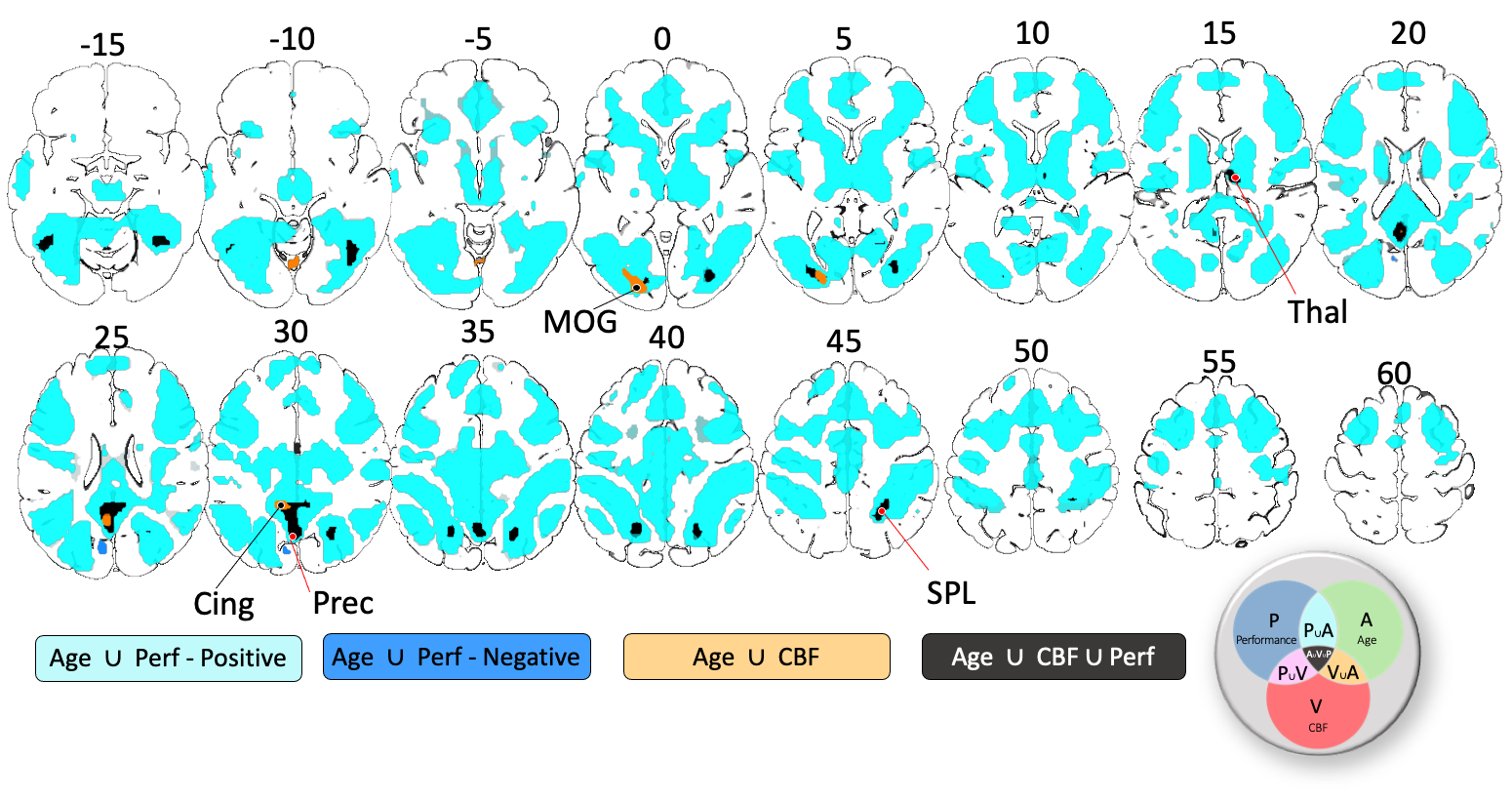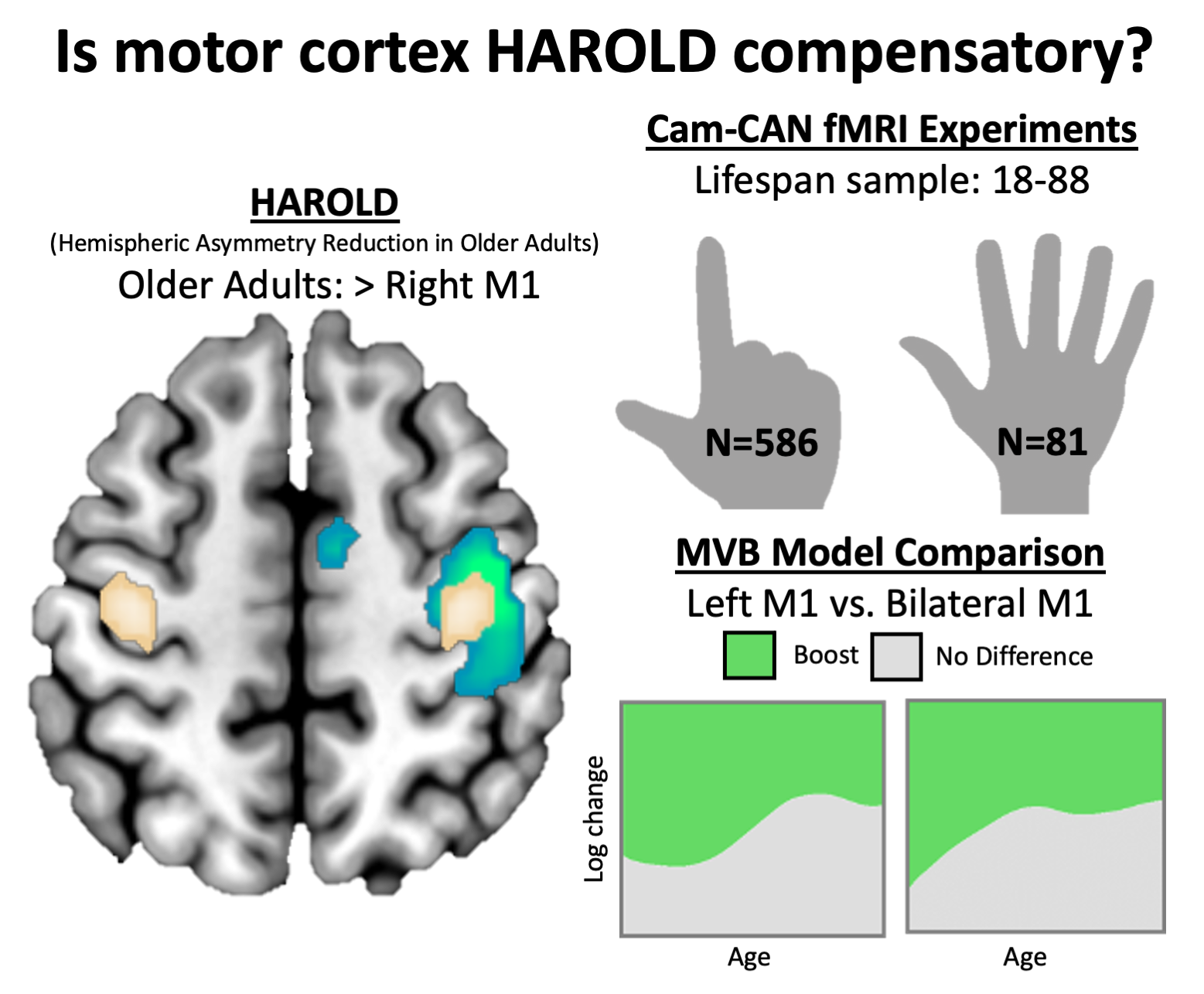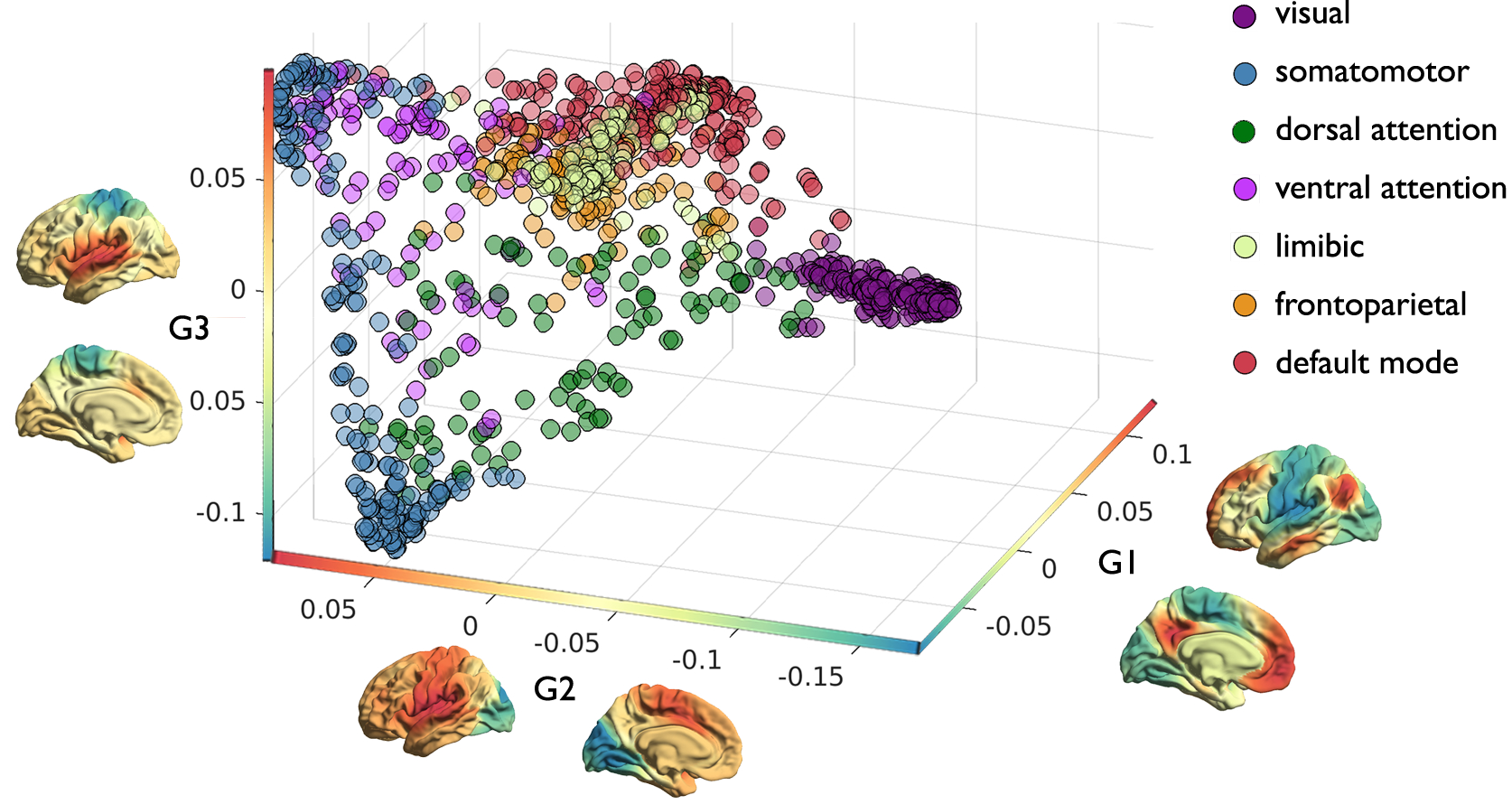Fluid intelligence, the ability to solve novel problems, is essential for effective behaviour but declines steeply with age. We show that this is partly explained by reduced activity in frontoparietal brain regions; however, the link between brain activity and intelligence is buffered by engaging in a wide variety of regular physical activities, which supports exercise as a potential lifestyle factor to help promote successful aging.
Good blood supply to the brain helps cognition in old age
Reduction in blood supply to the brain is a hallmark of dementia, but affects the brain and cognition in healthy ageing too. Using MRI to measure the brain’s perfusion at rest, we show that maintaining good cerebral perfusion into old age supports brain function during a challenging cognitive task.
Noradrenergic Regulation of Inhibitory Control
We know that a special form of adrenaline is important for controlling behaviour, but not how. Here, we used MRI to measure the bit of the brain that makes the adrenaline, and the activity of the brain when inhibiting actions. We show that the ability to control behaviour is related to the connectivity in the frontal lobe of the brain, which is itself regulated by the ability to make adrenaline
Human Brain Growth Charts
By combining MRI data from Cam-CAN with those from other cohorts, we contributed to the largest and first ever growth charts for the human brain.
Brain regions supporting age-related positivity bias in emotional regulation
Aging is associated with an increase in well-being and improved emotion regulation despite widespread cognitive decline. Using an emotion-regulation task and structural MRI data, we show the robust age-related increases in positivity is associated with integrity of key brain regions.
Neural shift associated with sleep quality
A neural shift, expressed as decreased occurrence of lower-order brain networks coupled with increased occurrence of higher-order networks, is associated with both increased sleep dysfunction and decreased fluid intelligence.
Hemispheric Asymmetry Reduction in Older Adults
During actions, older adults show greater activation in the non-dominant motor cortex. This has been suggested to be compensatory for age-related decline in the dominant hemisphere. However we find no evidence to support this, and suggest instead that the hyper-activation reflects inefficient processing or redued interhemispheric inhibition.
Transient neural network dynamics in cognitive ageing
The temporal properties of transient brain networks measured during resting-state with MEG are associated with both age and fluid intelligence, and are more consistent with age-related inefficiency than compensation.
Age-related changes in brain functional gradients
Brain function network changes, quantified using dispersion along multi-dimensional gradient maps, were more sensitive to age than traditional network metrics, independent from known morphological changes and scaled with fluid intelligence.
Cardiovascular health and cerebrovascular function have differential effects on brain health
Our findings establish a brain measure of vascular health that can be used to separate vascular signals from neuronal signals in neuroimaging studies, allowing the development of better models of ageing and age-related disorders.

 Cambridge Centre for Ageing and Neuroscience
Cambridge Centre for Ageing and Neuroscience










